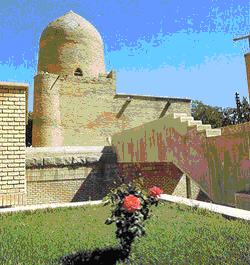Last night I saw the Chofetz Chaim Heritage Foundation’s video on the Attitude of Gratitude. Rabbi Rietti, one of the speakers was amazing as usual, and he made the point that Hashem gives us so much and wants nothing in exchange, except a thank you which we express in a brocha. In fact, he doesn’t even want the thank you, except for our benefit.
With thank yous on our mind, it is a great opportunity to thank our two rabbinic advisors Rabbi Herschel Welcher and Rabbi Yaakov Horowitz. Because today both of them are being honored today at dinners of wonderful Torah learning institutions. Rabbi and Rebbetzin Yakov and Udi Horowitz are being honored at Yeshiva Darchei Noam in Monsey, the school that he founded. While Rabbi and Rebbetzin Herschel and Miriam Welcher are being honored by Shevach High School a girls high school in Kew Gardens Hills.
Read more In Appreciation of Rabbi Horowitz and Rabbi Welcher

 Today I was speaking with a business associate who mentioned that his father was born and raised in Hamadan, Iran also known as Shush or Shushan HaBira–the setting for the Purim drama. Hamadan is located between Teheran and Iran’s western border with Iraq. He mentioned that his father is very proud of his birthplace–Hamadan literally means “place of knowledge” and its inhabitants were generally regarded as very intelligent. Interestingly, Hamadan was the first Iranian province to allow Jews to own property. He also mentioned that Esther and Mordechai are the most popular names for Jews born in Hamadan and he himself has numerous relatives bearing these names.
Today I was speaking with a business associate who mentioned that his father was born and raised in Hamadan, Iran also known as Shush or Shushan HaBira–the setting for the Purim drama. Hamadan is located between Teheran and Iran’s western border with Iraq. He mentioned that his father is very proud of his birthplace–Hamadan literally means “place of knowledge” and its inhabitants were generally regarded as very intelligent. Interestingly, Hamadan was the first Iranian province to allow Jews to own property. He also mentioned that Esther and Mordechai are the most popular names for Jews born in Hamadan and he himself has numerous relatives bearing these names.